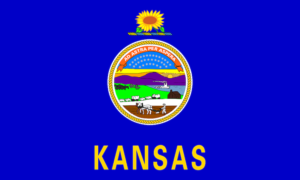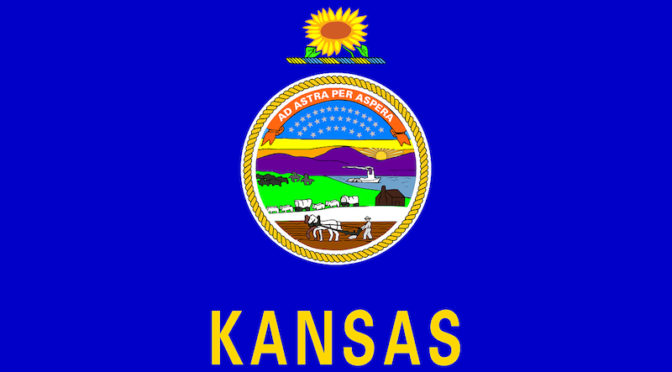National Foster Care Month
May is National Foster Care month, and here in Kansas, we’re working hard to ensure we have plenty of caring and quality foster care parents for our Kansas children.

The Kansas Department of Children and Families (DCF) has launched a major marketing campaign that encourages Kansas parents to consider fostering, or to support those in their community who choose to be foster parents. Many of our Senators have teamed up with DCF to create public service announcements around the state to spread this awareness.
We’re encouraged by this campaign as a first step to improve the state’s foster care system and to ensure every Kansas child – no matter what circumstances they were born into – has a warm bed, clean clothes and a loving family unit to call theirs.
CONFERENCE COMMITTEE REPORTS:
WORKING AFTER RETIREMENT (House Substitute for Senate Bill 21): House Sub. for SB 21 makes changes to the Kansas Public Employees Retirement System pertaining to working after retirement.
Under current law, KPERS retirees may return to work for employers who participate in the Retirement System if there has been a bona fide separation in employment of a minimum of 60 days with no preexisting arrangement to return to work. For most newly retired individuals, the law caps annual earnings at $25,000. When a retiree earns that amount, the person must decide either to stop working or stop receiving KPERS benefits for the remainder of the calendar year. Several groups of retirees—such as nurses at certain state institutions, individuals covered by the Kansas Police and Firemen’s Retirement System or the Retirement System for Judges, local government officials, and individuals employed with a participating employer prior to May 1, 2015 —are exempt from the cap. Certain licensed school district employees are also exempt. Participating employers who hire retirees are required to contribute to KPERS at varying rates, which can be as great as 30 percent of the retirees’ compensation, depending on the circumstances
The bill establishes a new working-after-retirement rule, which would take effect on January 1, 2018. For retirees under the age of 62, there would be a 180-day waiting period before returning to work. If the retiree is 62 or older, the current 60-day waiting period would apply. The current prohibition placed upon prearrangement for employment would continue to apply. For covered positions, the employer would pay the statutory contribution rate on the first $25,000 of compensation and, for that portion of compensation greater than $25,000, the contribution rate would be equal to 30 percent of the compensation. Covered positions for non-school employees are those that are not seasonal or temporary and whose employment requires at least 1,000 hours of work per year; covered positions for school employees are those that are not seasonal or temporary and whose employment requires at least 630 hours of work per year or at least 3.5 hours a day for at least 180 days. For non-covered positions, the employer would not make contributions.
The Senate adopted the Conference Committee Report Tuesday May 23, by a vote of 38-1 *I voted in favor of this bill: It clears up an IRS requirement, and it also gives more uniformity to retirees that qualify for KPERS.*
KANSAS DEPARTMENT OF AGRICULTURE
(House Substitute for Senate Bill 60): House Sub. for SB 60 extends the sunset for certain fees assessed by the Kansas Department of Agriculture on pesticides, fertilizer, and milk, cream, and dairy products. The bill also reinstates certain dam inspections fees and allow the KDA to assess a fee for processing certain paper documents when an electronic alternative for submission exists. Finally, the bill requires the Secretary of Agriculture to lower certain fees and potentially raise certain fees through rules and regulations, if certain criteria are met.
The Senate adopted the Conference Committee Report Tuesday May 23, by a vote of 32-7
*I voted against this bill: It gives the Secretary of Agriculture the ability to adjust fees with no legislative oversight.*
BILL SIGNINGS:
Senate Bill 89 – This bill amends the law relating to the collection of certain vehicle title and registration fees. *I voted for this bill*
House Substitute for Senate Bill 40 – Establishes new criminal charges aimed at reducing human trafficking and sexual exploitation of children and requires holders of Commercial Drivers Licenses be trained to recognize possible human trafficking. *I voted for this bill*
House Substitute for Senate Bill 120– Updates the code for civil procedure. *I voted for this bill*
Senate Bill 149 – Amends statutes regarding briefing in the Kansas Supreme Court and representation of state agencies by the Attorney General’s office. *I voted for this bill*
House Bill 2054 – Allows certain state agencies to share information with one another for the purpose of carrying out their official duties, allows for the Kansas Department of Corrections to request assistance from other jurisdictions if needed, and amends the law related to fee funds.*I voted against this bill: This bill allows for personal information to be shared more openly between agencies, public officials and private contractors.*
The Governor has now signed 79 bills into law this session and vetoed two. By law, the Kansas governor has 10 calendar days to sign the bill into law, veto the bill or allow the bill to become law without his or her signature.
NEXT WEEK:
Next week is the fifth week of Veto Session. We will continue working on our three big ticket items: taxes, budget and school finance. I hope you’ll reach out with any comments, questions, or concerns regarding these issues or others. If you are on Twitter or Facebook, I encourage you to follow along with the #ksleg hashtag for real-time updates on legislative happenings in Topeka as we work to wrap this legislative session up.
FLOOR ACTION:
PROPERTY TAX EXEMPTION (Substitute for HB 2230): Sub. for HB 2230, authorizes a property tax exemption and make a change to property tax exemption procedure for certain types of property.
This bill passed the Senate Thursday May 25, by a vote of 38-0.
*I voted for this bill: This bill allows the old army ammunition plant, the ability to attract new business to our region.*
